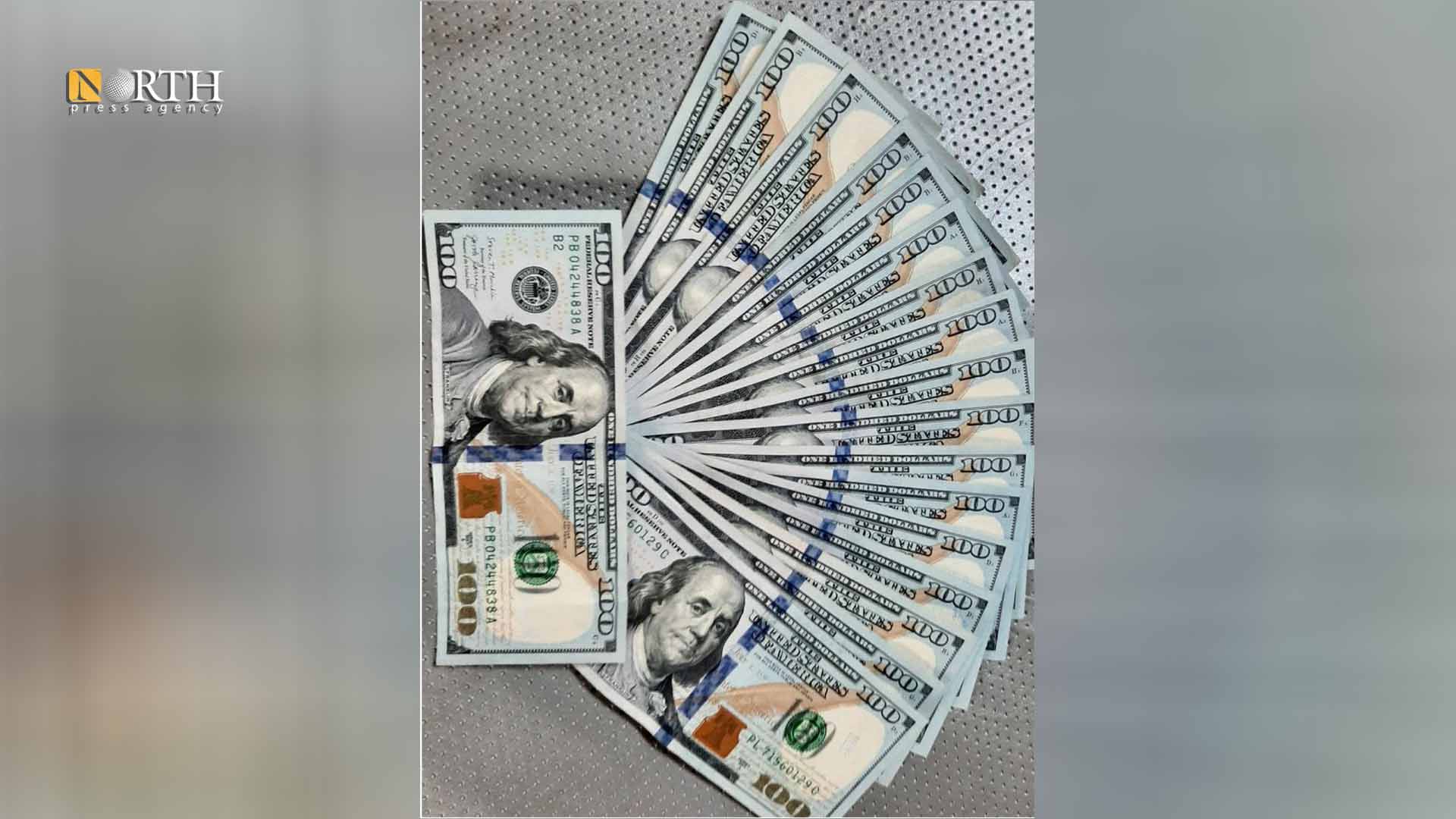DAMASCUS, Syria (North Press) – Riyad Naji, a pseudonym for a 56-year-old man who resides in Mashrou’ Domar neighborhood in Damascus, the capital of Syria, is stunned how he had been a victim of a fraud transaction when a friend of him persuaded him to buy $10,000, to discover later that they were fake dollars.
Naji said one of his friends convinced him to buy $10,000 with only 17 million Syrian pounds (SYP), a price Naji thought a good bargain compared to the real price set by the Central Bank of Syria.
Naji’s friend told him everything will be ok.
Naji wished to make his daughter’s dream in travelling abroad to complete postgraduate education to come true.
But, hopes shattered in front of his eyes when he went to the bank and there he learned that all the dollars he bought were “frozen”.
Naji is an engineer in a private company.
A frozen USD refers to the dollars in which exchanges into another country’s currency is not allowed. The frozen “frozen” US dollar was obtained during times of war. It is only purchased for half the price in the black market with illegal methods.
The fake US dollar is manufactured in a way to match the real dollars but does not have the regular serial numbers.
The central bank of Syria confiscates the frozen currency once it gets it.
The term “frozen currency” comes from the Gulf War following the invasion of Kuwait by the Iraqi army. The Iraqi forces were accused of looting Kuwait banks. The same scenario was applied in the war in Iraq and Libya.
All transactions or trade with the frozen currency are illegal and his/her holder is subjected to penalty and prosecution.
Officers and figures close to the Syrian government
The frozen US dollars spread predominantly in Syria, Turkey, Jordan, Iraq and Libya in addition to other countries. The frozen dollars are sold through brokers, gangs, or smuggling networks.
Naji called his friend and asked him to return the money within two days or he would tell the police but his friend said that the people who sold the frozen dollars would kill him if he dared and identified them. Naji was frightened and kept silent.
The police arrested Naji for investigation and then he was released for a bail.
Naji’s friend told Naji that at the beginning he did not know that the people who sold him the dollars were members of the Lebanese Hezbollah and officers in the Syrian government forces. He told Naji that he later learned that by chance.
Members of Hezbollah smuggle millions of counterfeit and frozen dollarsthrough the Syrian/Lebanese borders and they infuse funds into Syria in agreement with Syrian government officers.
Read also “Frozen and counterfeit dollars in Syria’s Raqqa” an investigation published by North Press in May 2021.
Laws held only the victims accountable
Youssef al-Ali, a pseudonym for a 34-year-old man from Damascus, was also a victim of a fraud incident. He exchanged 10 million SYP to the USD in the black market in Damascus thinking he is saving some money for the dark days in the future. But, he did not recognize that he was buying fake dollars.
“It is very difficult to differentiate between the real US dollars and the counterfeit ones. They are very identical. The gangs which sell them also have clever ways of scam,” he said.
Members of the smuggling gangs know what they are doing pretty well. They are sure that victims of fraud would not go to the police and file a lawsuit against the cheaters since the Syrian government already prohibited and criminalized the purchase of US dollars or dealing with it.
Other victims and I prefer the finical loss rather than being punished by the state. “Law doesn’t protect the dupes”.
In January 2020, Syria’s president Bashar al-Assad issued a legislative decree which criminalized the use of foreign currency while conducting financial transactions inside Syria, increasing the existing punishment to seven years of penal labor. Before that, the punishment was imprisonment for three years in addition to paying a fine.
Thieves and powerful personalities
In September 2021, the Central Bank of Syria announced it seized large amounts of forged foreign currencies in the country and called people not to purchase foreign currencies from non-government market.
“When citizens came to the Central Bank to pay their reimbursement, large amount of counterfeit currencies were discovered, which all of them were purchased from the non-government market,” the Central Bank said then.
The bank asked the Syrian people to abstain purchasing foreign currencies from the black market and urged them to head to the banks or exchange money companies in order to exchange their money.
However, the majority of the banks withheld selling US dollar or impose, if it does, too complicated measures. Therefore, the Syrians, who need foreign currencies to implement specific transactions, go to the black market to purchase the US dollar.
Moreover, people who get the US dollar from external transfers refuse to exchange their money with US dollar from the Central Bank. They prefer to go to the black market because they are paid a good price.
“The gangs promote for counterfeit and frozen US dollar are only a group of thieves, drug dealers and scammers. They are the people to blame for destroying Syria. They changed the country to a market to dispose every illegal substance and currency,” al-Ali said.
Al-Ali wonders “who will held them accountable? Will the government hold their officers accountable for forged US dollars? Or will it held members of the Lebanese Hezbollah accountable, the same people that are allegedly supporting the state in counter-terrorism war?

